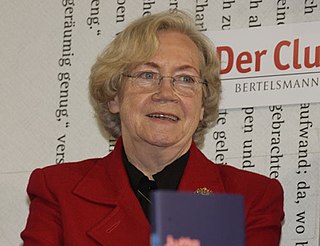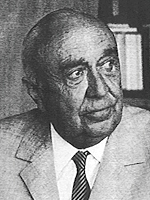
Duisburg is a city in the Ruhr metropolitan area of the western German state of North Rhine-Westphalia. Lying on the confluence of the Rhine and the Ruhr rivers in the center of the Rhine-Ruhr Region, Duisburg is the 5th largest city in North Rhine-Westphalia and the 15th-largest city in Germany.

The University of Duisburg-Essen is a public research university in North Rhine-Westphalia, Germany. In the 2019 Times Higher Education World University Rankings, the university was awarded 194th place in the world. It was originally founded in 1654 and re-established on 1 January 2003, as a merger of the Gerhard Mercator University of Duisburg and the university of Essen. It is based in both the cities of Duisburg and Essen, and a part of University Alliance Metropolis Ruhr.

Udo Di Fabio is a German jurist. He is a former judge of the Federal Constitutional Court of Germany, Germany's highest court, where he served as a member of the Second Senate from December 1999 until December 2011.

Jutta Limbach was a German jurist and politician. She was a member of the Social Democratic Party of Germany (SPD) and served as President of the Federal Constitutional Court of Germany from 1994 to 2002, the first woman in this office.
The 1990–91 2. Bundesliga season was the seventeenth season of the 2. Bundesliga, the second tier of the German football league system. It was the last season in which the league consisted of West German clubs only. From 1991–92 onwards clubs from the former East Germany joined the league.

Kurt Ranke was a German ethnologist who specialized in the study of fairy tales.
Hans-Dieter Tippenhauer was a German football manager.

Friedrich Bernhard Ferdinand Michelis was a German theologian and philosopher born in Münster.

Friedrich Maurer was a German philologist who specialized in Germanic studies.
Wilfried Loth is a German historian and political scientist.
Hermann Korte was a German academic specialising in German literature, language and linguistics.
Harald Holz is a German philosopher, logician, mathematician (autodidact), poet and novelist.
The 2016–17 season of the Frauen-Bundesliga was the 27th season of Germany's premier women's football league. Bayern Munich were the defending champions.
Franz Bosbach is a German historian and university professor.
Hans Joachim Schneider was a German jurist, criminologist and psychologist. He taught as Professor of Criminology at the University of Münster.

Ewald Frie is a German historian and biographer at the University of Tübingen. His research interests include German history of the 18th, 19th and 20th centuries, European nobility, poverty and the welfare state, and Australian history.
Heiko Steuer is a German archaeologist, notable for his research into social and economic history in early Europe. He serves as co-editor of Germanische Altertumskunde Online.

Reinhard Wenskus was a German historian who was Professor of Medieval History at the University of Göttingen. His theories on the identity of Germanic peoples have had a major influence on contemporary research by historians of late antiquity.
Franz Grave was a German Catholic prelate who served as auxiliary bishop of the Diocese of Essen from 1988 until his retirement in 2008. Grave was focused on intercultural dialogue with Latin America, and projects aimed at fighting unemployment and helping young people in difficult situations.
Jan Kohlhaase (1976) is a German mathematician specialising in the representation theory of p-adic Lie groups and arithmetic geometry.
This page is based on this
Wikipedia article Text is available under the
CC BY-SA 4.0 license; additional terms may apply.
Images, videos and audio are available under their respective licenses.









